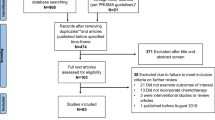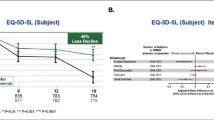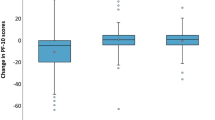Abstract
Purpose
This study aims to determine whether older breast cancer survivors score lower on neuropsychological tests compared to matched non-cancer controls and to test the hypotheses that survivors who were APOE ε4 carriers would have the lowest cognitive performance but that smoking history would decrease the negative effect of ε4 on cognition.
Methods
Female breast cancer survivors who had been diagnosed and treated at age 60 or older and were 5–15-year survivors (N = 328) and age and education matched non-cancer controls (N = 162) were assessed at enrollment and at 8-, 16-, and 24-month follow-ups with standard neuropsychological and psychological assessments. Blood for APOE genotyping was collected, and smoking history was assessed at enrollment. Participants were purposely recruited so that approximately 50% had a history of treatment with chemotherapy or no chemotherapy and approximately 50% had a smoking history.
Results
After adjusting for age, cognitive reserve, depression, and fatigue, breast cancer survivors scored significantly lower on all domains of cognitive function. A significant two-way interaction demonstrated that the negative effect of ε4 on cognitive performance was stronger among survivors. A significant three-way interaction supported the hypothesis that smoking history had a protective effect on cognitive function in ε4 carriers that was more pronounced in the controls than the survivors.
Conclusions
The results support the long-term cognitive impact of breast cancer diagnosis and treatments on older, disease-free survivors, particularly for ε4 carriers. The results also emphasize the importance of assessing smoking history when examining APOE and cognition and are an example of the complex interactions of age, genetics, health behaviors, and disease history in determining cognitive function.
Implications for Cancer Survivors
These results help explain why only a subset of breast cancer survivors appear to be vulnerable to cognitive problems.




Similar content being viewed by others
Data availability
Data will be made available upon reasonable request to the first author in accordance with the guidelines of the National Cancer Institute.
References
Ahles TA, Root JC. Cognitive effects of cancer and cancer treatments. Annu Rev Clin Psychol. 2018;14:435–51.
Lange M, Joly F, Vardy J, Ahles T, et al. Cancer-related cognitive impairment: an update on state of the art, detection, and management strategies in cancer survivors. Ann Oncol. 2019;30:1925–40.
Pergolotti M, Luca Battisti NM, Padgett L, Sleight AG, et al. Embracing the complexity: older adults with cancer-related cognitive decline: a Young International Society of Geriatric Oncology position paper. Journal of Geriatric Oncology. 2020;11:237–43.
Magnuson A, Ahles TA, Chen BT, Mandelblatt J, Janelsins M. Cognitive function in older adults with cancer: assessment, management and research opportunities. J Clin Oncol. 2021;39:2138–49.
Yamada TH, Denburg NL, Beglinger LJ, Schultz SK. Neuropsychological outcomes of older breast cancer survivors: cognitive features ten or more years after chemotherapy. J Neuropsychiatry Clin Neurosci. 2010;22:48–54.
Hurria A, Rosen C, Hudis C, et al. Cognitive function of older patients receiving adjuvant chemotherapy for breast cancer: a pilot study in breast cancer. Journal of the American Geriatric Society. 2006;98:1742–5.
Hurria A, Goldfarb S, Rosen C, et al. Effect of adjuvant breast cancer chemotherapy on cognitive function from the older patient’s perspective. Breast Cancer Res Treat. 2006;98:343–8.
Nguyen CM, Yamada TH, Beglinger L, Cavanaugh JE, Denburg N, Schultz SK. Cognitive features ten or more years after successful breast cancer survival: comparisons across types of cancer interventions. Psychooncology. 2013;22:862–8.
Mandelblatt JS, Small BJ, Luta G, Hurria A, Jim H, McDonald BC, et al. Cancer-related cognitive outcomes among older breast cancer survivors in the thinking and living with cancer study. J Clin Oncol. 2018;36:3211–22.
Hk S, Deal AM, Krishnamurthy J, Torrice C, Dillon P, Sorrentino J, et al. Effect of cytotoxic chemotherapy on molecular age in patients with breast cancer. J Natl Cancer Inst. 2014;106:dju57. https://doi.org/10.1093/jnci/dju057.
Chang L, Weiner LS, Hartman SJ, Horvath S, et al. Breast cancer treatment and its effects on aging. J Geriatric Oncol. 2019;10:346–55.
Salas-Ramiriz KY, Bagnall C, Abdali FCSA, Ahles TA, et al. Doxorubicin and cyclophosphamide induce cognitive dysfunction and activate ERK and AKT signaling pathways. Behavioural Brain Research. 2015;292:133–41.
Bagnall-Moreau C, Chaudhry S, Salas-Ramirez K, Ahles TA, et al. Chemotherapy-induced cognitive impairment is associated with increased inflammation and oxidative damage in the hippocampus. Mol Neurobiol. 2019;56:7159–72.
Ahles TA, Root JC, Ryan EL. Cancer- and cancer-treatment-associated cognitive change: an update of the state of the science. J Clin Oncol. 2012;30:3675–86.
Mandelblatt JS, Jacobsen PB, Ahles TA. Cognitive effects of cancer systemic therapy: implications for the care of older patients and survivors. J Clin Oncol. 2014;32:2617–26.
Wang Y, Du Y, Li J, Qiu C. Lifespan intellectual factors, genetic susceptibility, and cognitive phenotypes in aging: implications for interventions. Front Aging Neurosci 2019, 11: https://doi.org/10.3389/fnagi.2019.00129
Fernandez HR, Varma A, Flowers SA, Rebeck GW. Cancer chemotherapy related cognitive impairment and the impact of the Alzheimer’s disease risk factor apoe. Cancers. 2020;12:3842.
Tai LM, Thomas R, Marottoli FM, Koster KP, et al. The role of APOE in cerebrovascular dysfunction. Acta Neuropathol. 2016;13:709–23.
Piers RJ. Structural brain volume differences between cognitively intact ApoE4 carriers and non-carriers across the lifespan. Neural Regen Res. 2018;13:1309–12.
Ahles TA, Saykin AJ, Noll WW, et al. The relationship of APOE genotype to neuropsychological performance in long-term cancer survivors treated with standard dose chemotherapy. Psychooncology. 2003;12:612–9.
Ahles TA, Li Y, McDonald BC, et al. Longitudinal assessment of cognitive changes associated with adjuvant treatment for breast cancer: the impact of APOE and smoking. Psychooncology. 2014;23:1382–90.
Amidi A, Agerbaek M, Wu LM, et al. Changes in cognitive functions and cerebral grey matter and their associations with inflammatory markers, endocrine markers, and APOE genotypes in testicular cancer patients undergoing treatment. Brain Imaging Behav. 2017;11:769–83.
Correa DD, Satagopan J, Baser RE, et al. APOE polymorphisms and cognitive functions in patients with brain tumors. Neurology. 2014;83:1–8.
Reitz C, Luchsinger J, Tang MX, Mayeuz R. Effect of smoking and time on cognitive function in the elderly without dementia. Neurology. 2005;65:870–5.
Sabina S, Kiyimaki M, Kumari M, et al. Effect of apolipoprotein E4 on the association between health behaviors and cognitive function in late midlife. Mol Neurodegener. 2010;5:1–7.
Dufouil C, Tzourio C, Brayne C, et al. Influence of apolipoprotein E genotype on the risk of cognitive deterioration in moderate drinkers and smokers. Epidemiology. 2000;11:280–4.
Carmelli D, Swan GE, Reed T, et al. The effect of apolipoprotein E4 in the relationships of smoking and drinking to cognition. Neuroepidemiology. 1999;18:125–33.
Slotkin TA. Nicotine and the adolescent brain: insights from an animal model. Neurotoxicol Teratol. 2002;24:369–84.
Katzman R, Brown T, Fuld P, et al. Validation of a short orientation-memory-concentration test of cognitive impairment. Am J Psychiatry. 1983;140:734–9.
Box GEP, Cox DR. An analysis of transformations. J Roy Stat Soc B. 1964;26:211–52.
Wilkinson G, Robertson G. Wide Range Achievement Test 4 (WRAT4). Lutz, FL: Psychological Assessment Resources, 2006.
Benton AL. Neuropsychological assessment. Annu Rev Psychol. 1994;45:1–23.
Weintraub S, Salmon D, Mercaldo N, Ferris S, et al. The Alzheimer’s disease centers’ uniform data set (UDS): the neuropsychological test battery. Alzheimer Dis Assoc Disord. 2009;23:91–101.
Benton A. Differential behavioral effects in frontal lobe disease. Neuropsychologia. 2006;6:53–60.
Reitan R, Wolfson D. The Halstead-Reitan neuropsychological test battery. Tucson: AZ, Neuropsychological Press; 1985.
Delis DC, Kaplan E, Kramer JH. Delis-Kaplan executive function system. San Antonio, TX: The Psychological Corporation; 2001.
Stern RA, White T. Neuropsychological assessment battery (NAB). Psychological Assessment Resources (PAR), Lutz, Fl. 2003.
Stern RA, White T. NAB psychometric and technical manual. Lutz, FL: Psychological Assessment Resources, 2003.
WMS-R - Wechsler D. WMS-R: Wechsler Memory Scale–Revised. San Antonio, TX: Psychological Corporation; 1987.
Radloff LS. The CES-D scale: a self-report depression scale for research in the general population. Appl Pscyhol Measurement. 1977;1:385–401.
Spielberger CD. Manual for the State-Trait Anxiety Inventory (STAI: Form Y). Palo Alto: Consulting Psychologists Press; 1983.
Hann DM, Jacobsen PB, Martin SC, et al. Fatigue in women treated with bone marrow transplantation for breast cancer: a comparison with women with no history of cancer. Support Care Cancer. 1997;5:44–52.
CDC-Behavioral Risk factor Surveillance System, Center for Disease Control. http://www.cdc.gov.brfss. Accessed 2021
Orlow I, Reiner AS, Thomas NE, Roy P, et al. Vitamin D receptor polymorphisms and survival in patients with cutaneous melanoma: a population-based study. Carcinogenesis. 2016;37:30–8.
Mahley RW, Rall SC. Apolipoprotein E: far more than a lipid transport protein. Annu Rev Genomics hum Genet. 2000;1:507–37.
Ahles TA, Schofield E, Li Y, Ryan E, Root JC, et al. Relationship between cognitive functioning and frailty in older breast cancer survivors. J Geriatric Oncol. 2021. https://doi.org/10.1016/j.jgo.2021.07.011Online ahead of print.
Gelman A, Rubin DB. Inference from iterative simulation using multiple sequences. Stat Sci. 1992;7:457–72.
Stan Development Team. (July 26, 2020). Brief guide to Stan’s warnings. Retrieved from https://mc-stan.org/misc/warnings.html#r-hat
Gelman A, Jakulin A, Grazia Pittau M, Su Y-S. A weakly informative default prior distribution for logistic and other regression models Annals of. Appl Stat. 2008;2008(2):1360–83.
Gelman, A. (2007, 11 May 2007). Weakly informative priors. Retrieved from https://statmodeling.stat.columbia.edu/2007/05/11/weakly_informat/
Horton NJ, Brown ER, Qian LJ. Use of R as a toolbox for mathematical statistics exploration. Am Stat. 2004;58:343–57.
Ahles TA, Schofield E, Li Y, Ryan E, Root JC, Patel SK, McNeal K, Gaynor A, Tan H, Katheria V, Vazquez J, Traina T, Hurria A. Relationship between cognitive functioning and frailty in older breast cancer survivors. J Geriatr Oncol. 2022;13:27–32.
Small BJ, Raswon KS, Walsh E, et al. Catechol-O-methyltransferase genotype modulates cancer treatment-related cognitive deficits in breast cancer survivors. Cancer. 2011;117:1369–76.
Cheng H, Wen L, Gan C, et al. The COMT (re165599) gene polymorphism contributes to chemotherapy-induced cognitive impairment in breast cancer patients. Am J TSransl Res. 2016;8:5087–97.
Li W, Shao J, Ding K, et al. Catechol-O-methyltransferase gene polymorphisms and the risk of chemotherapy-induced prospective memory impairment in breast cancer patients with varying tumor hormonal receptor expression. Med Sci Monit. 2020;26:e923567.
Vega JN, Albert KM, Mayer IA, Taylor WD, Newhouse PA. Nicotinic treatment of post-chemotherapy subjective cognitive impairment: a pilot study. J Cancer Surviv. 2019;13:673–86.
Majdi A, Sadigh-Eteghad S, Gjedde A. Effects of transdermal nicotine delivery on cognitive outcomes: a meta-analysis. Acta Neurol Scand. 2021;144:179–91.
Durazzo TC, Mattsson N, Weiner WW. Interaction of cigarette smoking history with APOE genotype and age on amyloid level, glucose metabolism, and neurocognition in cognitively normal elders. Nicotine Tob Res. 2016;18:204–11.
Amini R, Sahli M, Ganai S. Cigarette smoking and cognitive function among older adults living in the community Neuropsychology, Development, and Cognition. Sect B, Aging, Neuropsychol Cognition. 2021;28:616–31.
Mortensen EL, Hogh P. Gender differences in the association between APOE genotype and age-related cognitive decline. Neurology. 2001;57:89–95.
Damoiseaux JS, Seeley WW, Zhou J, Shirer WR, et al. Gender modulates the APOE epsilon4 effect in healthy older adults: convergent evidence from functional brain connectivity and spinal fluid tau levels. J Neurosci. 2012;32:8254–62.
Zhang Q, Wu L, Du C, Xu K, et al. Effects of an APOE promoter polymorphism on fronto-parietal functional connectivity during nondemented aging. Front Aging Neurosci. 2020;12:183.
Laws SM, Clarnette RM, Taddei K, Martins G, et al. APOE- ε4 and APOE-491A polymorphisms in individuals with subjective memory loss. Mol Psychiatry. 2002;7:768–75.
Acknowledgements
We thank the study participants, professionals, and members of Love Research Army (formerly the Army of Women) and the research professionals at Memorial Sloan Kettering Cancer Center and City of Hope Comprehensive Cancer Center.
Funding
This research was supported by grants from the National Cancer Institute (TA: R01 CA172119, U54 CA137788, P30 CA008748), the American Cancer Society (SKP: RSG-17–023-01-CPPB), and the Internal MSK grants (IO: Society of MSK, Brain Tumor Center Award).
Author information
Authors and Affiliations
Contributions
Tim Ahles, Arti Hurria, Irene Orlow, Elizabeth Ryan, and James Root contributed to the study conception and design. Statistical analyses were conducted by Yuelin Li and Elizabeth Schofield. Data collection and material preparation were performed by Katrazyna McNeal, Heidi Tan, Vani Katheria, Jessica Vazquez, Sergio Corrales–Guerrero, and Keimya Sadeghi. The first draft of the manuscript was written by Tim Ahles, and all authors commented on previous versions. All authors read and approved the final manuscript.
Corresponding author
Ethics declarations
Ethics approval
All methods and procedures were approved by the institutional review boards of Memorial Sloan Kettering Cancer Center and City of Hope Comprehensive Cancer Center.
Consent to participate
Informed consent was obtained from all individual participants included in the study.
Conflict of interest
The authors declare no competing interests.
Additional information
Publisher's note
Springer Nature remains neutral with regard to jurisdictional claims in published maps and institutional affiliations.
This paper is dedicated to the memory of Arti Hurria, MD, FASCO, who was a world leader in breast cancer and geriatric oncology.
Supplementary information
Below is the link to the electronic supplementary material.
Rights and permissions
Springer Nature or its licensor (e.g. a society or other partner) holds exclusive rights to this article under a publishing agreement with the author(s) or other rightsholder(s); author self-archiving of the accepted manuscript version of this article is solely governed by the terms of such publishing agreement and applicable law.
About this article
Cite this article
Ahles, T.A., Orlow, I., Schofield, E. et al. The impact of APOE and smoking history on cognitive function in older, long-term breast cancer survivors. J Cancer Surviv 18, 575–585 (2024). https://doi.org/10.1007/s11764-022-01267-z
Received:
Accepted:
Published:
Issue Date:
DOI: https://doi.org/10.1007/s11764-022-01267-z




